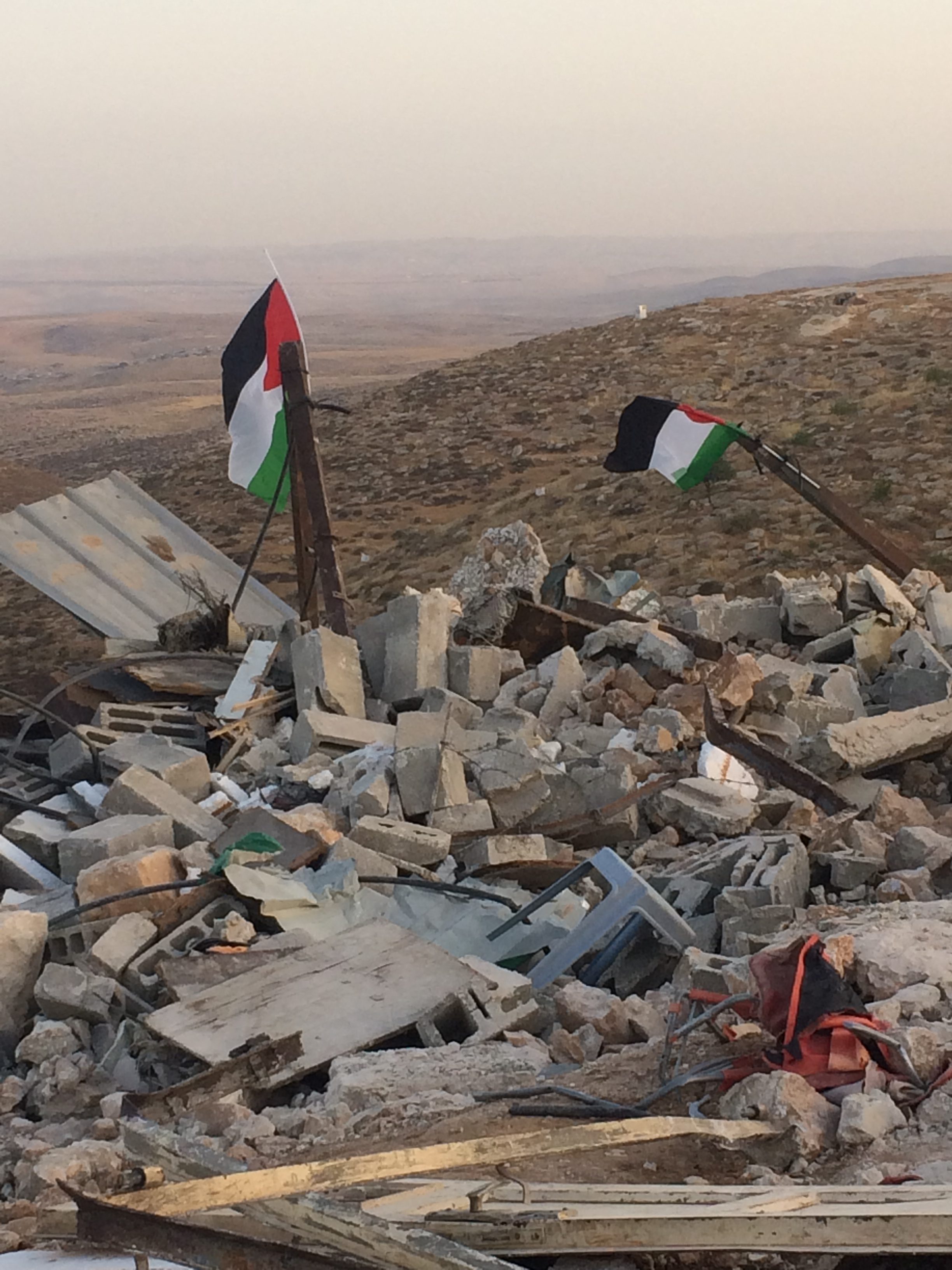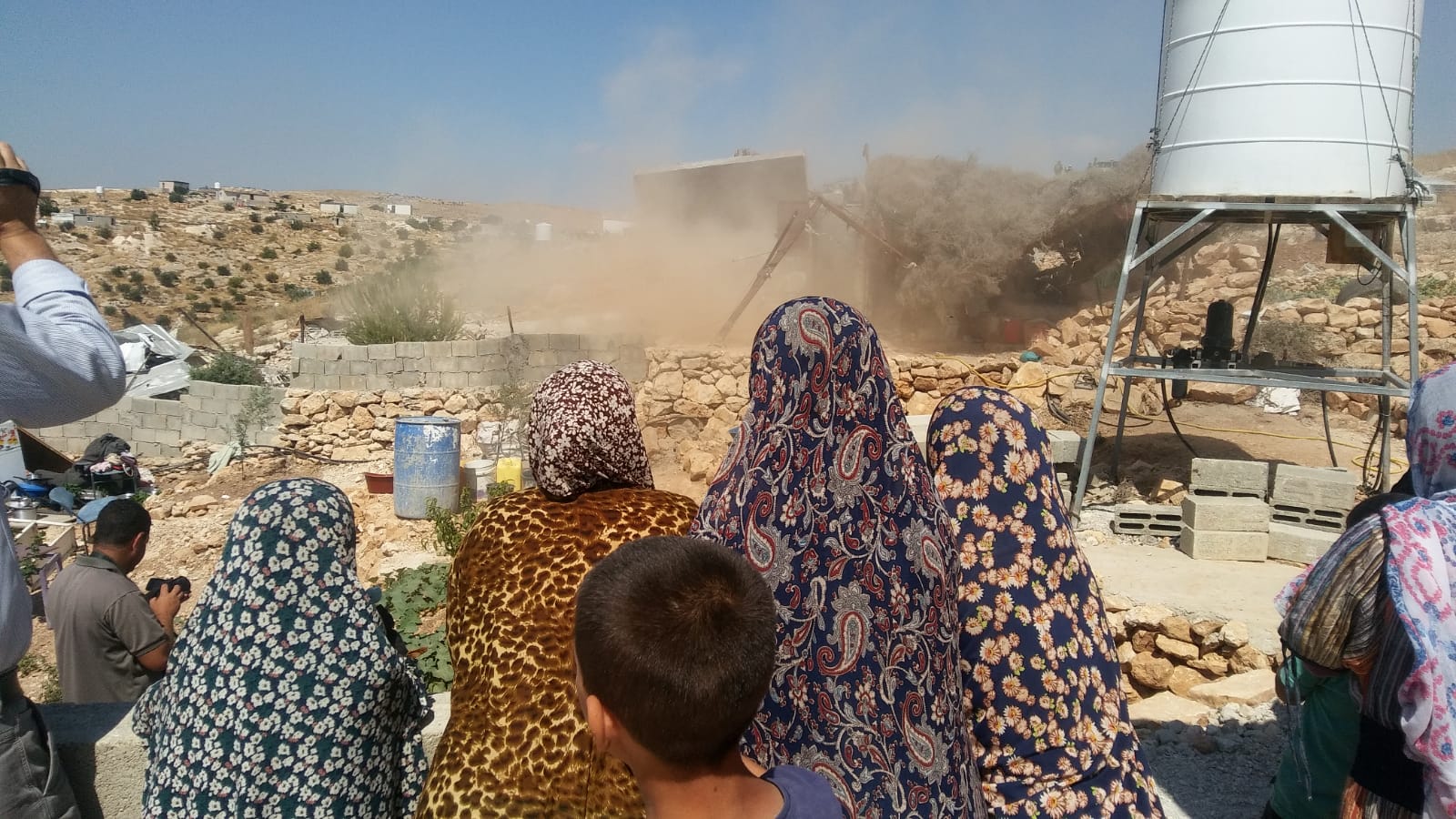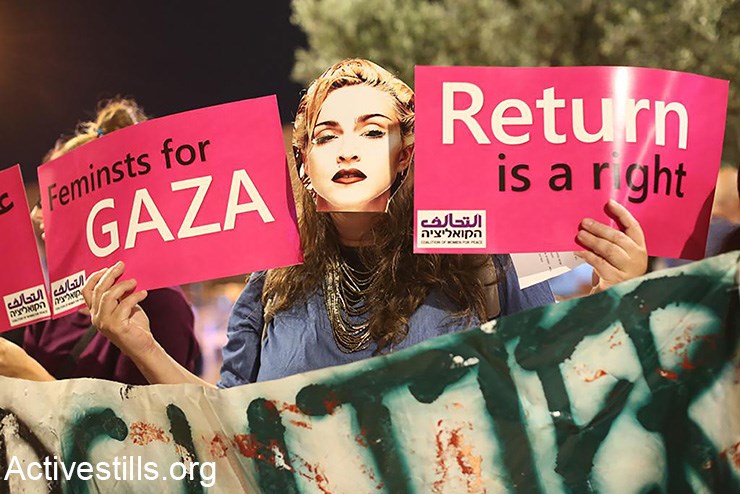Category: Features
-
Five days after demolition: Picking up the pieces
June 21, 2019 | International Solidarity Movement | South Hebron Hills, occupied Palestine Palestinian flags fluttered over the rubble of Mohammad al Dababsh home in the South Hebron Hills yesterday as local activists helped the family put up a temporary shelter. Pots and pans lay scattered amongst bricks, metal and dust – the only remnants…
-
Villagers live in fear and uncertainty as four more homes demolished in South Hebron Hills
June 18, 2019 | International Solidarity Movement | South Hebron Hills, occupied Palestine Occupation forces went on a demolition spree yesterday in the South Hebron Hills, bulldozing the homes of four families in two villages. A convoy of border police, Israeli Civil Administration officials, soldiers and two JCB bulldozers arrived in the village of Khalet…
-
ISM Week of Action Against Eurovision
May 2019 | International Solidarity Movement| occupied Palestine ISM’s week of action against the Eurovision in Tel Aviv In coordination with the Palestinian Boycott National Committee (BNC) and The Palestinian campaign for the Academic and Cultural Boycott of Israel (PACBI) and in collaboration with Israeli anti zionist groups has been a huge success! From before…



